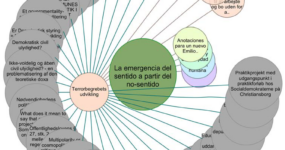
Photo Credit: Noah Seelam/AFP
On the morning of February 6, a few hundred African students gathered on the steps of Bengaluru’s Town Hall, a striking, colonnaded building at the heart of the sprawling metropolis best known as India’s Silicon Valley. Holding posters, some printed and most handwritten, and shouting slogans, they were protesting the assault on a Tanzanian student who had alleged that she was stripped and beaten up by a mob on January 31.
It was a heartfelt outcry over violence against Africans that is becoming all too commonplace in India. But there was also a strange air of amusement and bewilderment at the protest site. The policemen sniggered, speaking among themselves. Some passersby openly laughed, entertained by the sight of a group of agitating African students. Others simply walked by, unperturbed.
In many ways, those reactions reflect the reality that African students in India must contend with: A selectively racist nation that, at once, has the potential to fulfil their dreams, but which could also turn into their worst nightmare.
Janeth, who only gave her first name, decided to leave Tanzania and read for an undergraduate degree at Bangalore University in 2012 because of the solid reputation of Indian institutions in accounting and finance, her subjects of choice.
“My experience was not bad,” she told Quartz, “50-50.” Her experience with fellow students was problematic, and she did face racism, especially from the general public. “They think Africans are into fraud and prostitution,” she said.
Even landlords, who sometimes speak with potential tenants on phone, often deny apartments on realising that they were speaking to an African. “I don’t want Africans,” the typical landlord would say, Janeth recalled. “Africans are rude and have too many friends.”
Higher education in Africa
There was a time when Africa’s best and brightest stayed at home for their higher education. The likes of Nobel Prize-winning Nigerian writer Wole Soyinka, Tanzania’s post-independence leader Julius Nyerere, and Namibia’s first president Sam Nujoma, were all educated at African universities.
But underfunding and mismanagement, coupled with what the Ugandan academic Mahmood Mamdani called the “NGO-isation of the university”, has stripped Africa’s centres of higher learning of their reputations. In fact, a 2015 list by the Times Higher Education, a British publication, named only five African institutions among the top places for research.
So, those African parents who can afford it, send their children abroad for studies. India, known for quality education that is also inexpensive compared to Europe or North America, is attracting a fair share of these students.
India’s higher education sector has boomed in recent years, led by world-class, state-funded institutions such as the Indian Institutes of Technology and the Indian Institutes of Management, besides a number of well-run private universities and colleges. The country’s higher education system is now one of the largest in the world (pdf), with over 26 million enrolled in tertiary education.
But studying here isn’t without its challenges, particularly for African students.
Sense of fear
Abigail, who also gave only her first name and refused to reveal her nationality, came to India four years ago.
“I came to India because I love India. I used to watch a lot of Indian movies. In Africa, we are so crazy about India and Indian movies. Most of us come here because of the way they (Indians) portray themselves through their movies,” the researcher at Bengaluru’s Indian Institute of Science explained.
“But when we come here, we see something different and it is really really disappointing,” Abigail added.
During her time as an undergraduate student at Bangalore University, Abigail was shaken by the news of the brutal gangrape of a 23-year-old woman physiotherapy intern on December 16, 2012, in New Delhi. The victim later came to be known as Nirbhaya, the fearless one or braveheart, in India.
“After the braveheart incident,” Abigail said, “I felt that if Indians don’t respect women of their own country, who are we to demand respect?”
That sense of fear persisted, along with an increasing realisation of the barriers – language, for instance – that widen the chasm between Indians and Africans. “They can’t express their feelings to us because we don’t understand their language,” she said.
That’s likely a far cry from the image of India that Bollywood once helped construct in Abigail’s mind.
But it’s not that African students who come to India don’t have an inkling of what’s in store. Even then, the subcontinent outdoes itself.
Bias on the street
A Tanzanian alumnus of Hyderabad’s Osmania University, who requested anonymity, had heard of discrimination that African students faced in India. Yet, it didn’t faze her. Because “racism is all over the world, including in places like the UK,” she explained.
At university, she never felt discriminated against by her professors, who she said always treated her fairly. But it was different when it came to commoners. “Someone may leave their seat on a full bus to avoid sitting next to you,” she said.
The attitude often even permeated into fellow students. “They think black people are poor. They don’t believe Africa is developed,” she explained. “Their racism is because they don’t have exposure.”
That version of Africa wasn’t entirely different from what AV Madhusudhan had heard of while growing up in Bengaluru. But, before launching Just Practicals, his education startup that works with African students, Madhusudhan travelled through the continent. Those journeys changed his perception.
“I feel Indians need to gain knowledge about Africa. That’s what’s missing,” he told Quartz at the protest outside Bengaluru’s Town Hall. “Once we educate ourselves about Africa, I am sure we will understand these students better.”
But Africa’s affection for Indian education may already be fraying. Anecdotal information collected by Madhusudhan suggests that, after a rise in African students coming to India between 2008 and 2014, the numbers are tapering off. There were about 10,000 students from African countries, according to an Indian government survey (pdf) based on data between 2010 and 2012. However, Madhusudhan estimates that about four times that number of African students actually remain in the country.
Looking for other places
“Over the last year or so, the students who go back to Africa from India are talking about how India is probably not the best place to go to,” he explained. “So African students are looking at other places, like China, which they think would be better for them.”
Still, there are those who have succeeded in India. It’s been 16 years since Charles, who also gave his first name, left Kenya and moved to Bengaluru. He read for an undergraduate degree in law at the Visveswarapura College of Law, following it up with a master’s degree, also in law. He is now a PhD student in Mysuru, about 150 kilometres from Bengaluru.
“I am not saying that we are never at fault. Sometimes we are. But what happens is that when you try to talk and discuss something that’s happened, people will not listen to you,” Charles told Quartz, while taking a break from leading the slogans at the protest in Bengaluru. “Maybe because we are foreigners, people just conclude that we are wrong.”
“We love India and if you go to any country in Africa, Indians are loved,” he added. “We need to see something of that sort in India, too.”
[“source-Scroll”]
| M | T | W | T | F | S | S |
|---|---|---|---|---|---|---|
| 1 | 2 | 3 | 4 | 5 | 6 | |
| 7 | 8 | 9 | 10 | 11 | 12 | 13 |
| 14 | 15 | 16 | 17 | 18 | 19 | 20 |
| 21 | 22 | 23 | 24 | 25 | 26 | 27 |
| 28 | 29 | 30 | 31 | |||



























